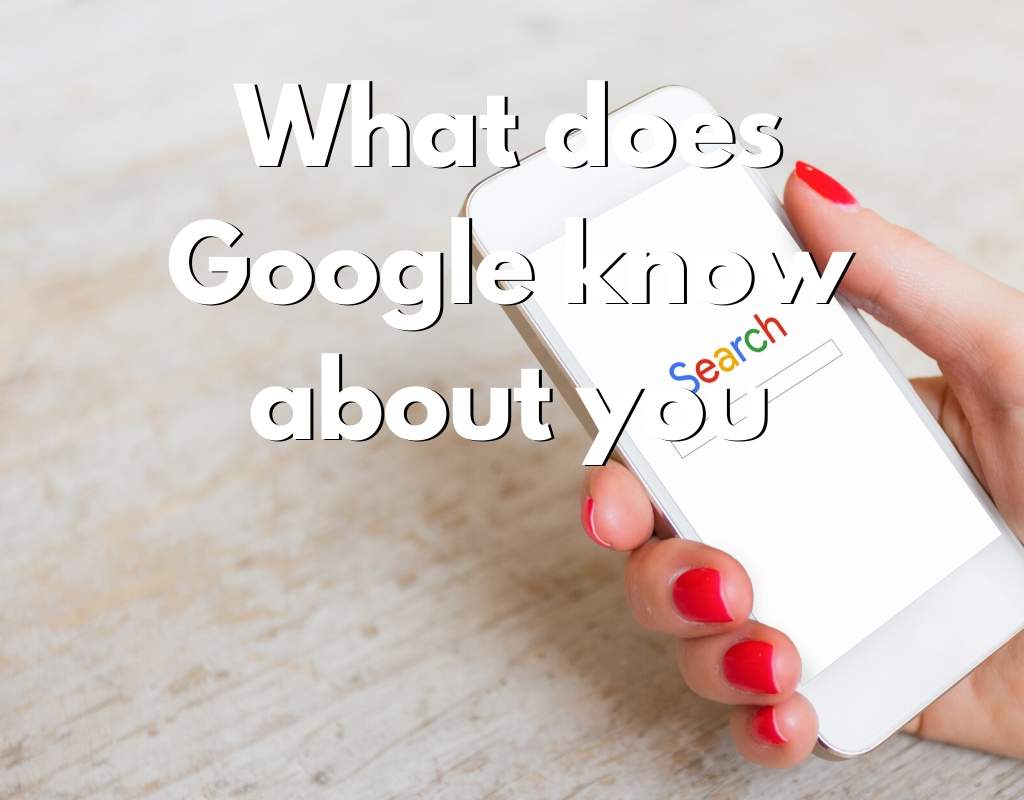We’ve all heard the horror stories about hyper targeting and personalisation. You know, when you’re talking to your friend about taking a vacation, and then the next time you open up Facebook or Google, you’re suddenly inundated with ads about Beautiful Bali or Incredible India. Are your devices and social platforms listening to you? What does Google know about me and you?
Well, If you’re not paying for a product or service, then you are the product being sold. It’s no secret that for platforms like Google, Facebook, Twitter etc, we are essentially the product (the audience product) being paddled to advertisers to sell advertising space. So, the more they know about us, the more they’ll know what we like, and what they can sell to us. And the more accurate they get at that, the more revenue they make. Simple, right? Hyper personalised ads at scale are what makes advertisers keep flocking back to these social media and search giants, and they will stop at nothing to get more data out of you, their precious commodity.
Google’s business
Google’s core business is advertising. They have several business units, not all revenue generating for now. But their cash cow has always been their advertising business. In Q1 of 2020, Alphabet (Google’s parent) reported US$41B in revenue, of which US$33B came from advertising.
Search makes up the chunk of it. But they’ve also started breaking out YouTube revenues, which brought in US$4B out of the US$33B. These numbers are no chump change, especially given that these are quarterly numbers. Most of us would kill for an annual revenue of $1B, let alone 4.
Google’s Business Units
Google’s revenue generating products include Search, YouTube, Google Cloud, Google Analytics and hardware such as the Pixel phones and Chromebooks.
However, they have a bunch of products, that taken together, knows a whole lot of information about us. This includes Gmail, YouTube, Chrome Browser, Maps, Android, Google Home etc. These all feed different types of data into their massive audience profiling segment that then dictates which ads to show us.
The best thing is, for Google Search, we are the ones actively feeding the Google machine what exactly we’re looking for. New shoes, clothes, pregnancy tips that then gives them additional data points about us becoming parents…
If you think I’m going to rail on privacy issues, quite the opposite. I’m actually in awe of how they do it. And to be honest, I’d rather be served an appropriate ad where I might need the thing, rather than a totally random guess that I might be looking for deep maroon lipstick when I’m a dude. So yes, if it wasn’t clear before, I’m all for targeted advertising. After all, what privacy are we actually really giving up? The knowledge that I like Mars bars over Snickers? Big fucking deal. So what if they know I’m a parent? I don’t care. If the internet has to be ad supported (as it has since the beginning), then show me something I want over some other rubbish, thank you.
So, what does Google know about me?
Yes yes, this is what you’ve been waiting for. How to find out what google knows about me.
First off, you have to be logged in to your google account. Then, go to ad settings and voila. You’ll start to see a bunch of interests and demographic segments that Google thinks you belong to, based on your interactions with their suite of products.

Let’s see what they got right. Age, Gender, Banking interests because I was with Citi for a while. Let’s see what else there is.

Home ownership status, marital status, interest in investing. Now let me show you something interesting. If I click on parental status, I see this.

Now, those who know me, you’ll know I have a 3 year old, and a 5 going on 6 year old this year. So this parental status was eerily spot on! I have a feeling Google Photos may somehow play a part in this, and of course inference on parental and pregnancy related searches in the past.
Data gold for digital marketers
With all this information, from a marketing perspective, this is beautiful. This is how we target our ads, and cater it specifically to parents, to the aging population, to people who like the outdoors, to people who travel or are planning on traveling.
Even if the same product can be attractive and relevant to different audience groups, we can now bucket them into separate groups, and create compelling copy and visuals that will relate to them, and make it more relevant and persuasive to both segments. Not only that, we can test out different versions of ads, and actually measure which one drove better results.
This is the power of digital marketing, and something that print and press just can’t achieve at scale, or even at all. And this is why, year on year, digital ad spend is far outpacing traditional or offline ad spends.
So, what does google know about you, and will that freak you out? Are you in camp privacy or camp whatever?
